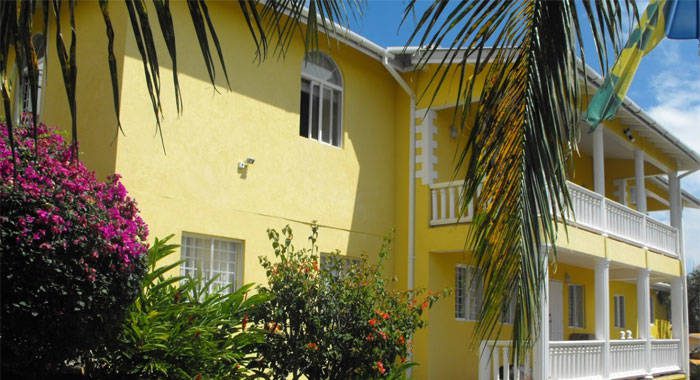Regulators in St. Vincent and the Grenadines had Loyal Bank in their scope before the offshore bank was indicted on March 1 in the United States in a US$50 million fraud scheme.
Prime Minister Ralph Gonsalves further told a press conference on Monday that the local Financial Service Authority (FSA), which regulates non-commercial financial institutions in SVG, has taken a number of steps since the indictment.
Gonsalves noted that the statement issued by the FSA after the indictment and sent to at least one media house for paid publication noted that the scheme “alleges stock manipulation, money laundering and other illicit operations out of which USD$225,000 out of USD$50,000,000 is alleged to have been facilitated by Loyal Bank Limited”.
He said: “I have seen the headlines saying $50 million dollars though Loyal Bank. But if you read the indictment, you will see that the allegation through Loyal Bank is in relation to $225,000.”
Gonsalves said that the authorities have had Loyal Bank under close supervision for several years.
“They have done on site and off site examination,” he said, adding that the FSA conducted an off-site examination in 2017 in Hungary.
The FSA conducted on-site examinations in 2016 and 2017 and the FSA outlined to the bank and its management it findings, including several actions, with specified timelines that were to be taken, concluding in August 2017.
The prime minister said there was a follow-up on-site inspection with respect to the anti-money laundering, counter-financing of terrorism matters of the bank over a number of days in November 2017.
“And from that review, the FSA issued certain very specific directives to the bank pursuant to Section 1(a) of the Financial Services Authority Act,” said Gonsalves, who had been Minister of Finance until last November.
He said there was a directive letter of Jan. 15, 2018, “with a number of things”, noting that this is before the indictment “or any matter came into being”.
“I am saying all this to show you that the FSA has been on top of the matter in regulation and the FSA has continued their work even before the indictment was known in the beginning of March.”
He said that in early February 2018, the FSA did an on-site inspection in relation to the bank “concerning capital, asset quality, management, internal control, risk management and liquidity.
“And since then, a number of measures have been taken by the bank,” he said.
The prime minister said that on March 4, after the indictment was announced, “there were certain directives issued to the bank on certain matters as to how certain business can be conducted, to get daily reports in relation to a series of matters.
“I don’t have to go through all of what is here,” he said, pointing to a dossier.
“On Monday, the 5th, early at 8 o’clock, the team at FSA met the leading persons there, dealt with them, certain actions were taken in relation to personnel,” he said.
“And I will tell you that the FSA has taken a number of steps to deal with some matters internally with the bank before the indictment, after the indictment and they have cooperated with the US authorities and I can tell you that the relevant authorities in the United States have written to the Attorney General thanking the authorities in St. Vincent and the Grenadines for their cooperation and they have done so face to face, word-of-mouth the people at the FSA and at the FIU,” the prime minister said.
Loyal Bank, an off-shore bank with offices in Budapest, Hungary and SVG; and Loyal Agency and Trust Corp. (“Loyal Agency”), an off-shore management company located SVG, are among six individuals and four corporate defendants indicted in New York.
Prosecutors say they proposed that an undercover law enforcement agent purchase a Pablo Picasso painting to launder fraudulent profits from a stock manipulation scheme.
The other individual defendants are: Panayiotis Kyriacou, also known as “Peter Kyriacou”, 26, Aristos Aristodemou, 49, and Matthew Green, 50, residents of London, England; Arvinsigh Canaye, also known as “Vinesh Canaye”, 30, a resident of Mauritius and Adrian Baron, 63, a resident of Budapest, Hungary.
The other corporate defendants are Beaufort Securities Ltd., of London, England and Beaufort Management Services Ltd., of Mauritius.
The charges include conspiracy to commit securities fraud and money laundering conspiracy.







Now that it has coe out that some of these people involved have SVG citizenship, we have to ask even more questions. Essentially: How did they get SVG Citizenship and what did they have to do for it? Who granted it and for what reason(s)?
I am sure the answers to these questions would be very shocking. Will the answers ever see the “light of day”?
I think you should ask yourself those questions first seeing that you were granted SVG citizenship one way or the other.
They get svg citizenship by marriage or by investment connections.